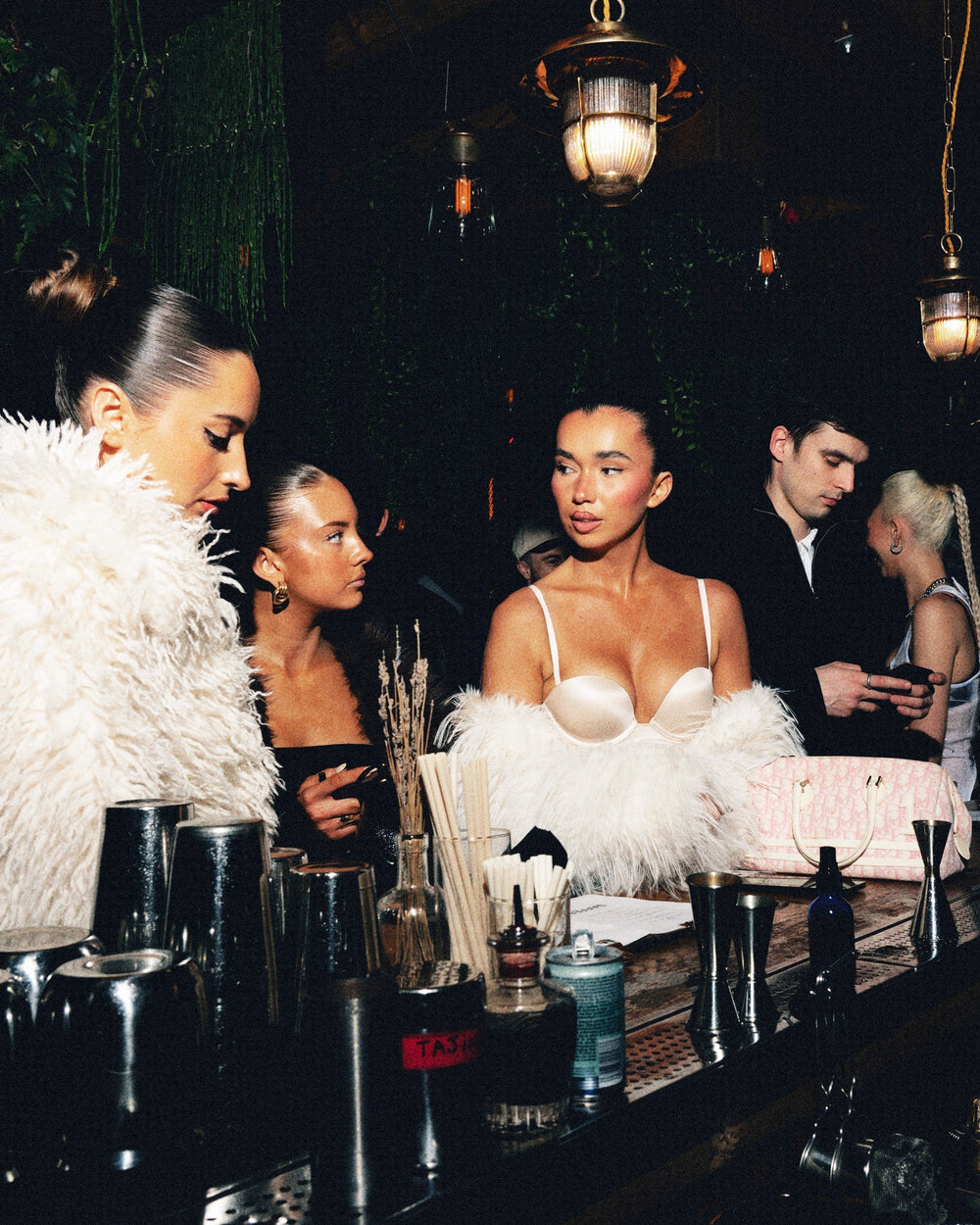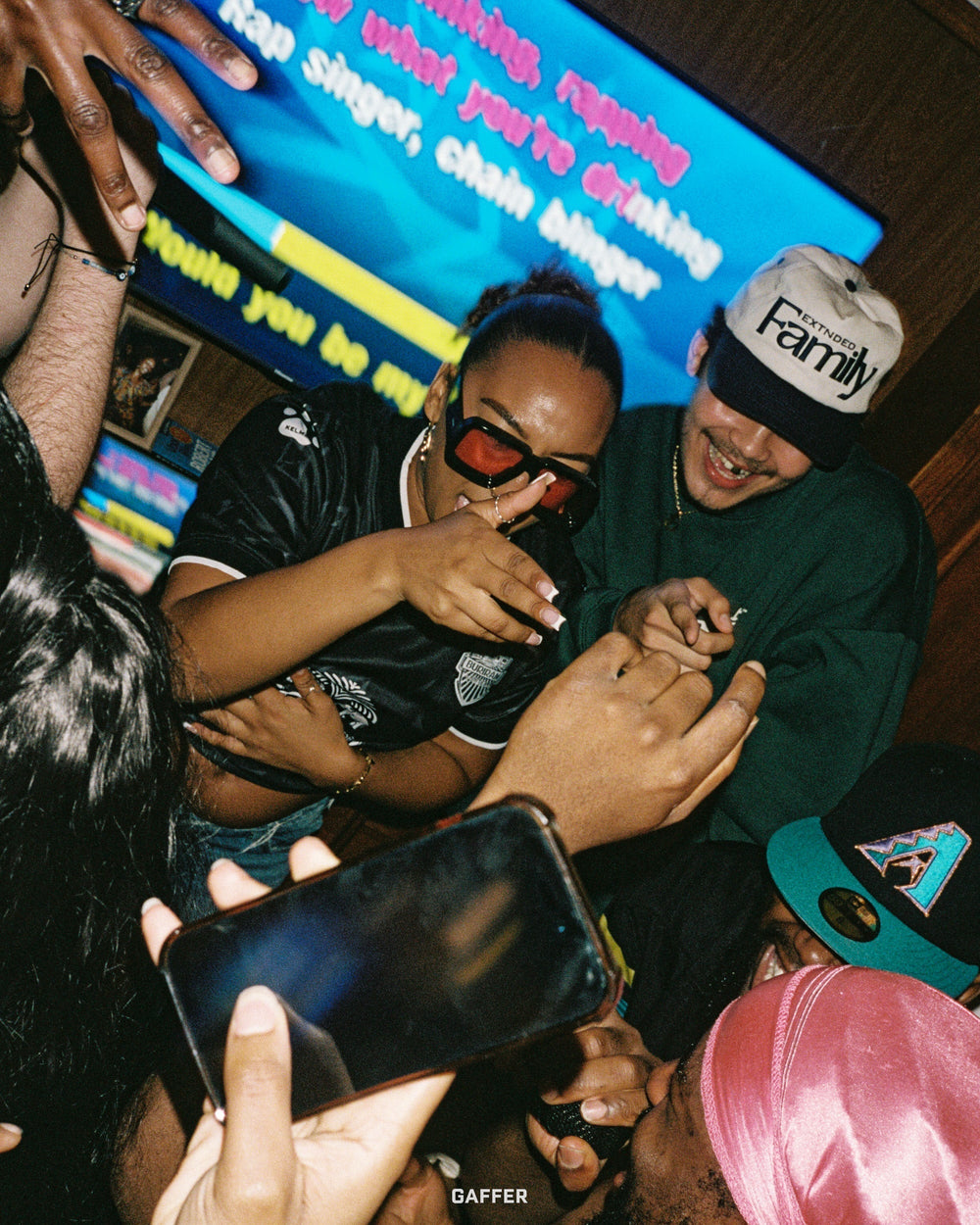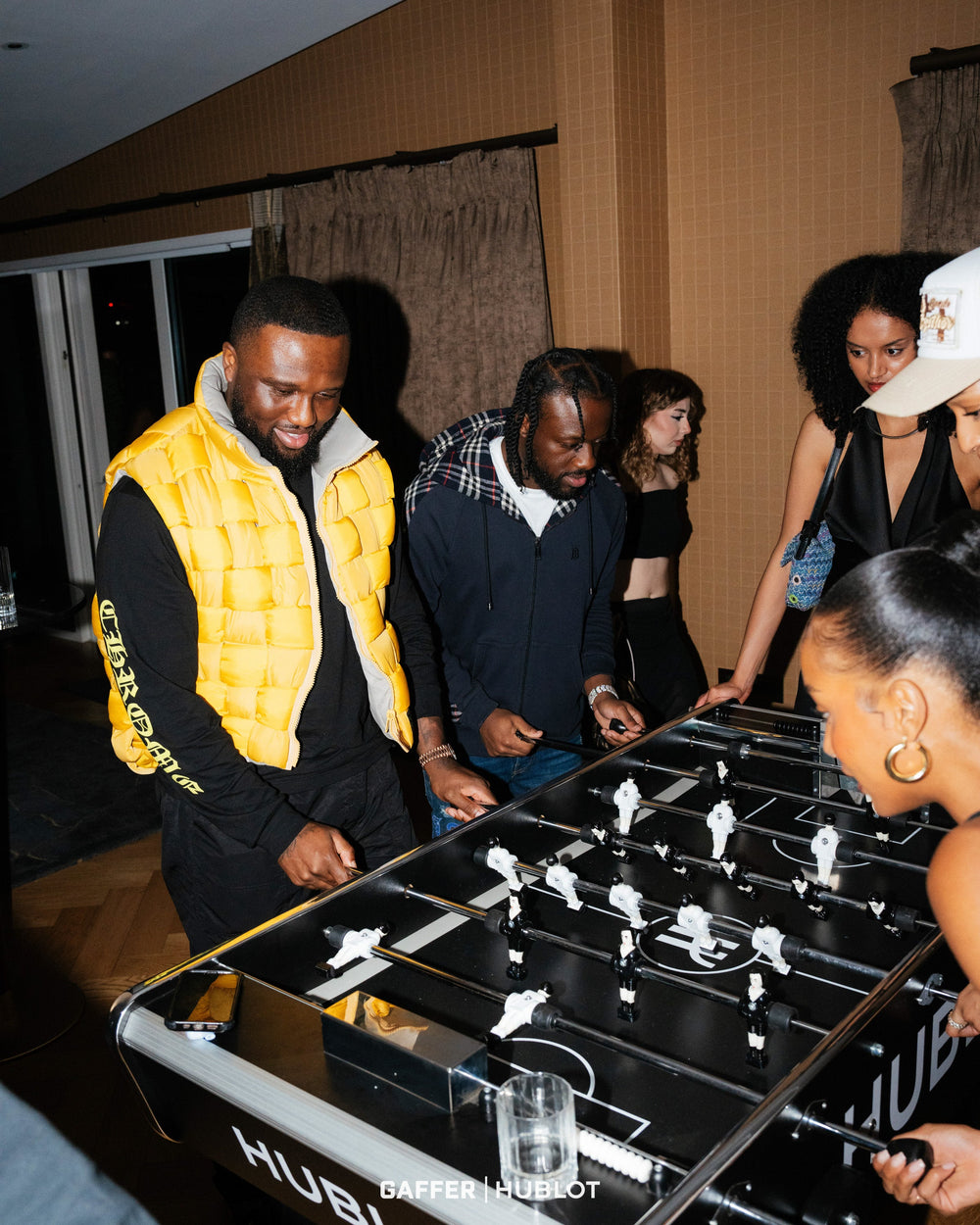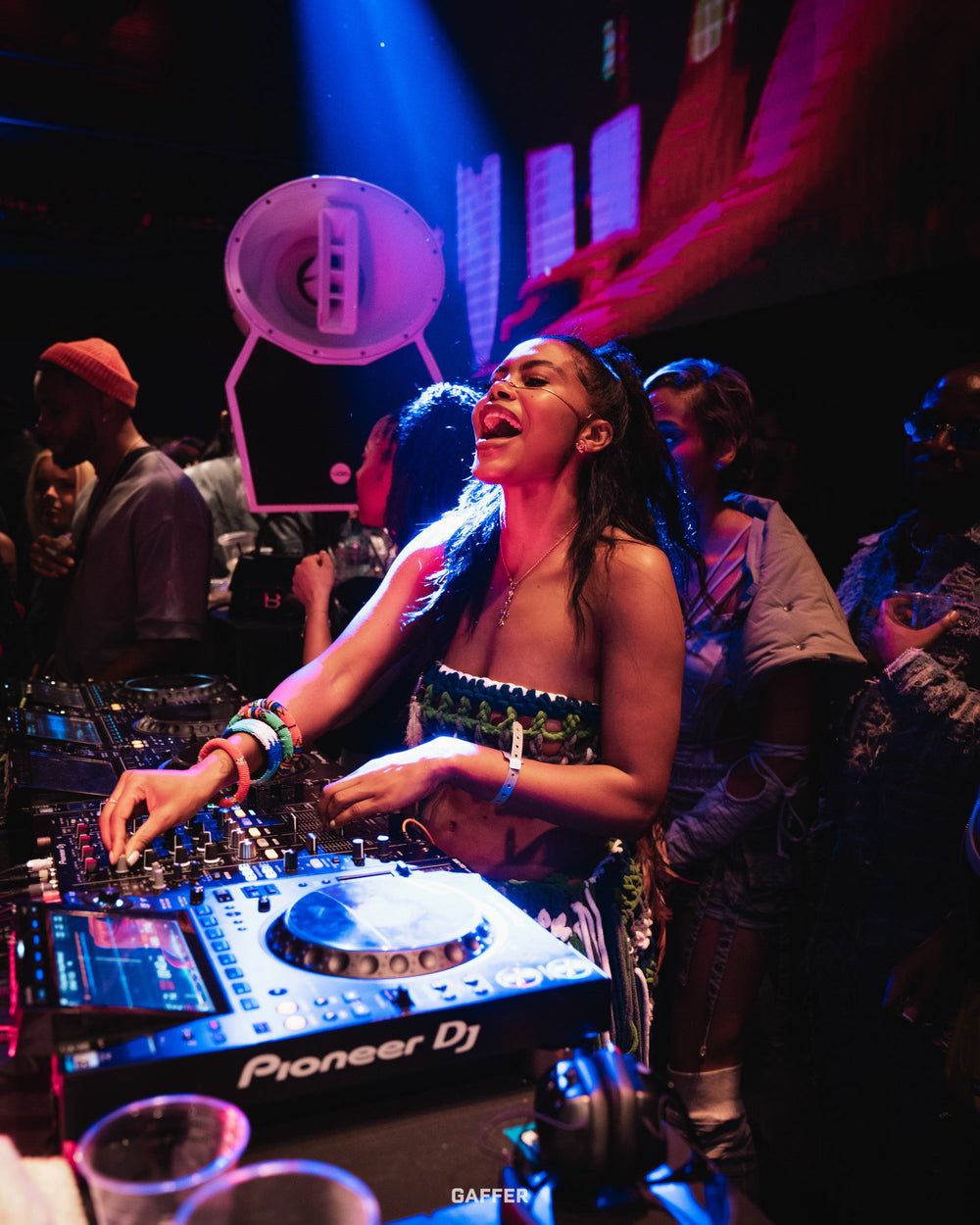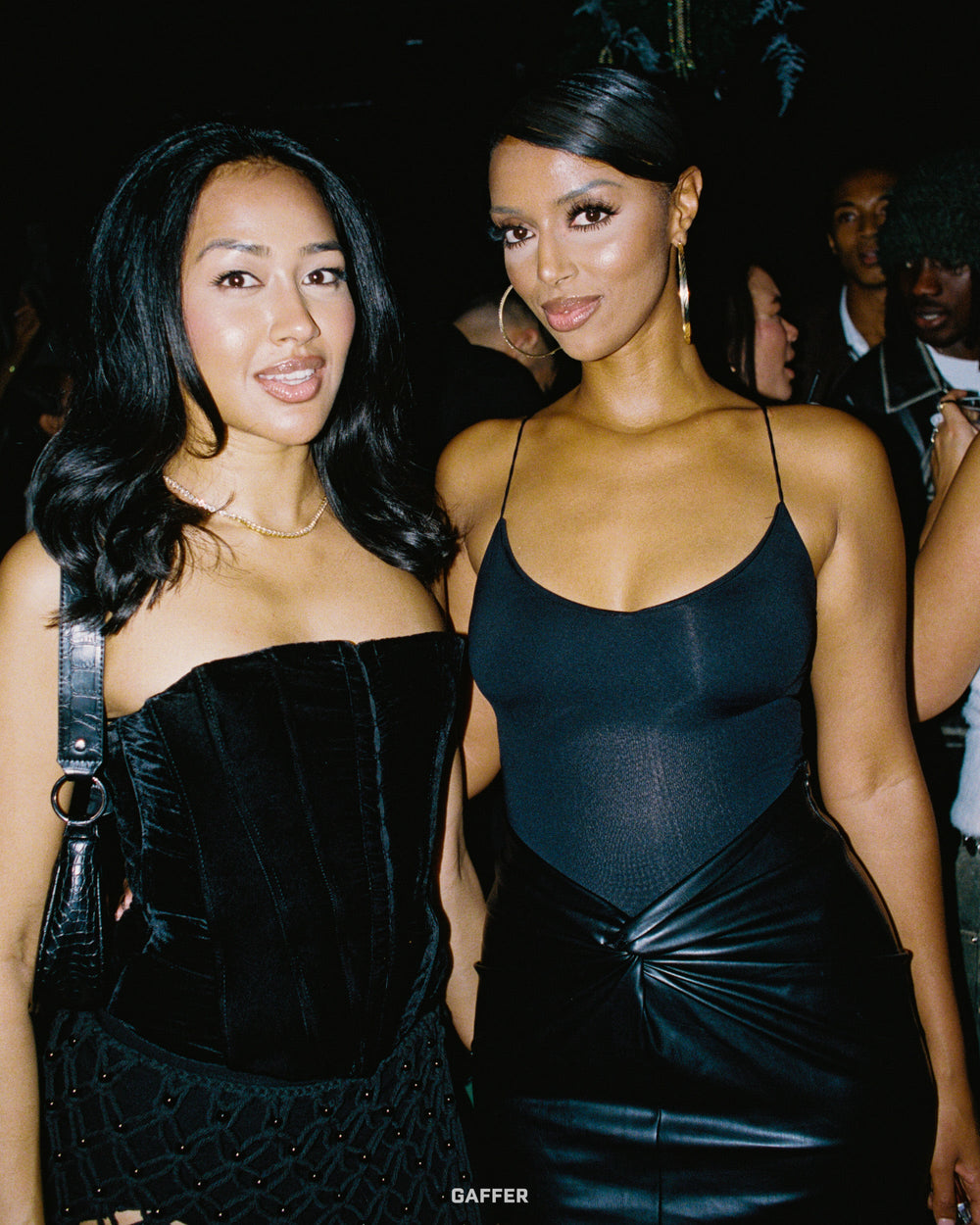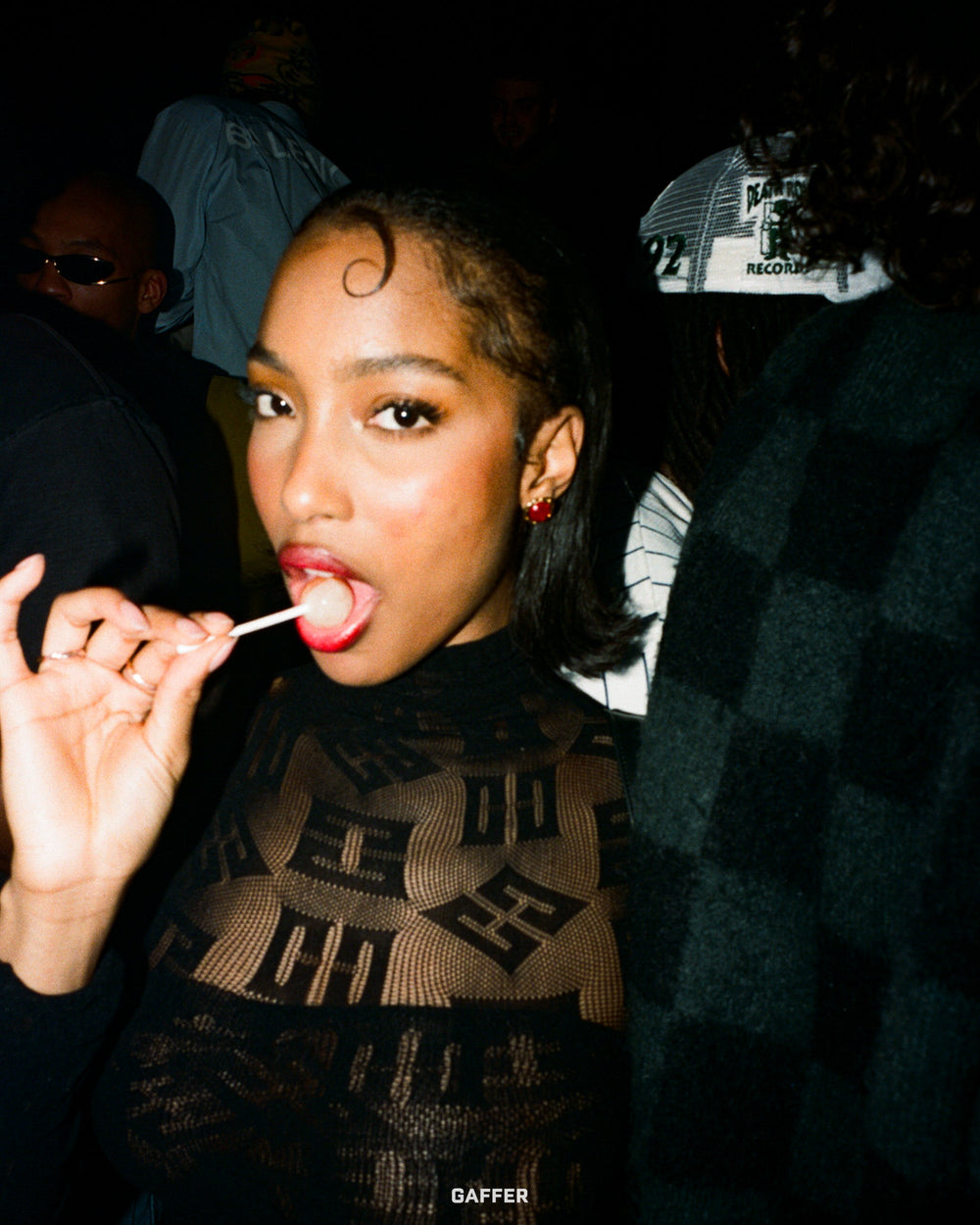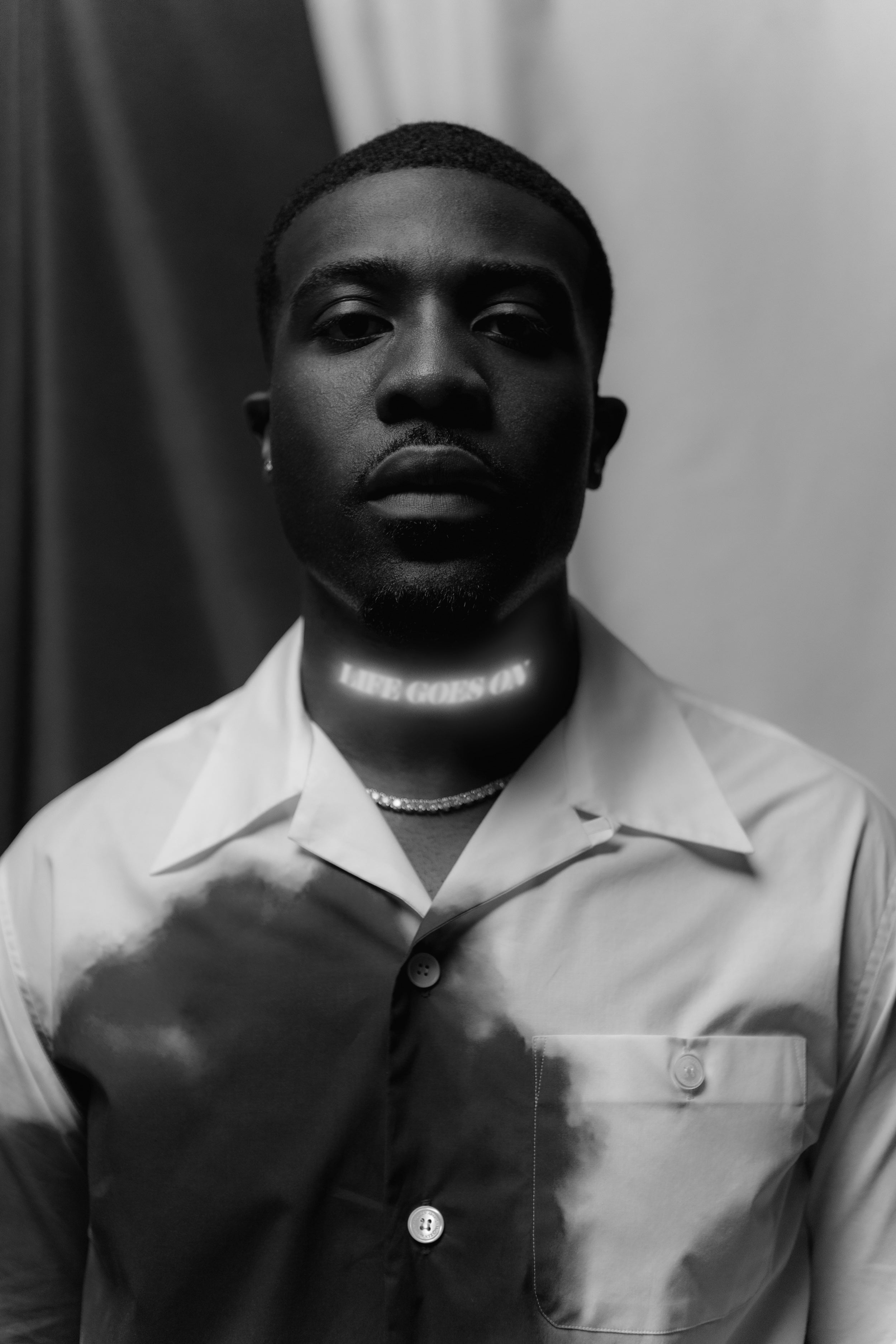 shirt: Alexander McQueen / chain: cernucci
shirt: Alexander McQueen / chain: cernucci
The decision of being a producer and switching to creating your own art isn’t unorthodox, however, it’s no easy feat and he has had his fair share of success so early on his musical journey.
With his single ‘I Lied’ featuring in American hit-drama ‘Power’, and a performance at Wireless with Kaash Paige, the groundwork he has put in to be able to make the most of the opportunities presented to him has been highlighted by such achievements.
He recalls, “having interactions with people just made me realise this is bigger than me because of the words, you might have certain songs that become the soundtrack to people's lives and encourages them more.”
While Scribz’s career is just getting started in fine fashion, he’s adamant we haven’t seen anything yet and that he’s only just beginning to find his feet and really show what’s to come.
Jacket: A.A.Spectrum / T-Shirt: GAFFER / Trousers: A-COLD-WALL / Shoes: Nike / Necklace: Scribz Own
Where would you say your early musical influences came from?
I've lived in a couple of places, but I grew up in East London, just as Grime was kinda being introduced, so me, my brothers and my friends used to MC. Around us there was Nasty Crew, I started hanging out in Bow because I was in a group called ‘Wolf Pack’, and then from there, I could see people like Wiley and Tinchy, all these Grime scene icons. They were the legends to me. I was like, these guys are making something of themselves, and in something they’re passionate about which made me respect them a lot. The fact that they were close enough where I could see them in person made it more real and made them inspire me.
When did you really begin to take producing seriously?
You know that six-week summer you have at the end school? There was one year where the mandem didn't see me the whole six weeks. It was just me and fruity loops. I would have been around 17 or 18 years old, and my mum asked me what I wanted for my birthday? I remember she had this big Nigerian suitcase in one of the rooms, so I asked if she could take it out so I can convert the room into a studio. That's all I wanted for my birthday, and she let me do it. I just converted the room into like a mini home studio.
How did your big break come about?
I mean, it was during the time I had to go uni. I was like, I'm not going anywhere to study psychology, I'm just not doing it. I ended up going Uni for a month in Surrey, and then my brother was in Copenhagen, and he played a producer called Jason Gill some of my beats. He told me I had to come Sweden and literally that next week they flew me out and that was like my first time working out of a proper studio. I was there for a month and did some good work, so they offered me a deal. I decided against signing it because it wasn’t right at that time, but it helped me understand my value and from that moment onwards I left uni and put 100% into music.
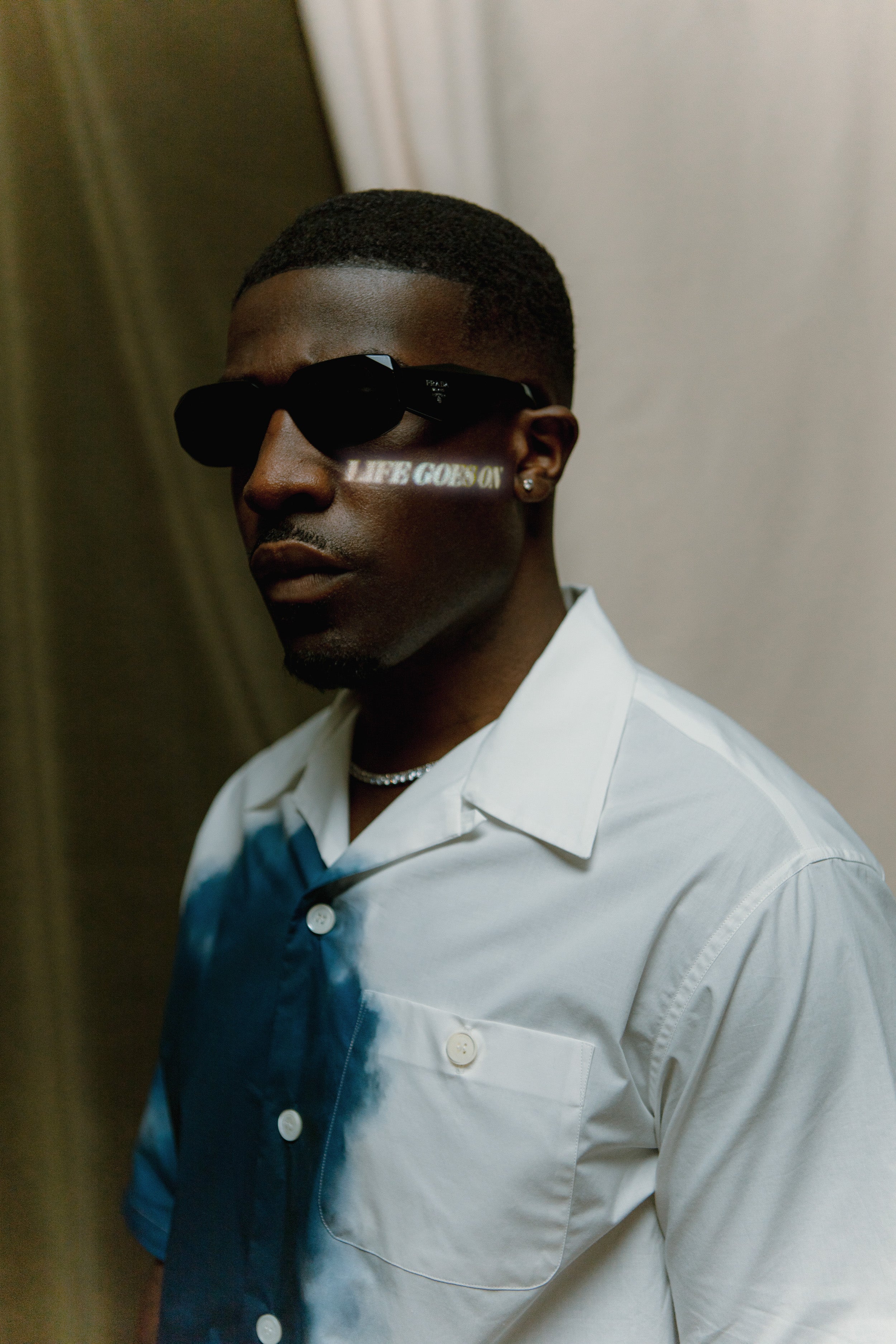 Jacket: A.A.Spectrum / T-Shirt: GAFFER / Trousers: A-COLD-WALL / Shoes: Nike / Necklace: Scribz Own
Jacket: A.A.Spectrum / T-Shirt: GAFFER / Trousers: A-COLD-WALL / Shoes: Nike / Necklace: Scribz Own
Has becoming a successful artist had a positive or negative impact on your producing career?
I feel like I’m still growing as an artist, but it’s actually helped me as a producer, like understanding the dynamics of space, because I used to make beats and think this is cold, why doesn’t the artist like it? Now I’m in a position where sometimes I don’t want to use the hardest beat because I just don’t connect with it, and it’s taught me that it’s not always about the most skilful beat, but more so the ‘right’ beat. My approach to sessions now is centred around letting artists tell their story and catering for that.
How do you usually go about your creative process when it’s time to cook up a single or work on a project?
I usually go to Sweden to work on a project. I don’t know why, but there’s this one studio that’s in the middle nowhere, I see nobody, I go there by myself, there’s no distractions and because there’s no linkup, I just lock in. Every time I’ve gone, I’ve been mad productive, the last time I went I made two songs and then ‘I Lied’ also.
Why Sweden? Out of all the places you could go for a secluded studio session?
Do you know what, my career actually started in Sweden, I was working with a lot of Swedish artists and producers, that was literally my start in music. When things started to properly take off, I was going to America a lot, and it hit me when I was doing ‘Wish Me Luck’ I’ve covered deep sections and memories in my life, besides this one part of my story and that was Sweden. It’s just a place that feels familiar but very honest for me, I go there to humble myself and just reset, it’s a home away from home.
Is there anything you saw in artists when working with them that you wanted to incorporate into your music?
When I listen to music, what I really respect is artists who make me feel like I know them even though I've never met them before. I feel so connected to them and I think I've always wanted that kind of relationship with people that listen to my music. I genuinely can’t make music that is fabricated, so I think that helps massively, because my best songs all come from me talking about real life experiences or feelings.
"...when I go on the credits of a track and the producer credit hasn't been entered, that’s the worst thing I can see because they are such a pivotal part of the process."
Lately, we’ve seen producers’ voices grow as a collective around issues within the music industry, especially some of the unjust treatment they face. What do you make of the topic?
Producers are one of the most important people in the music industry. The thing that I hate most is when I go on the credits of a track and the producer credit hasn't been entered, that’s the worst thing I can see because they are such a pivotal part of the process. I’m all for them taking a stand in making what is important to them heard and matter.
What would you say is the biggest difference between being a producer and an artist?
Being a producer, it's all about the music, your beats. As an artist, it’s a lot more than just making a song, especially in today’s world. It's about shoots, appearances, meetings, performances, conversations and attending things. I feel like that's the part that I didn't really understand at the beginning, coming to the realisation that the music is only like 50% of it – if that even.
Do you think being such an experienced producer has made you a better judge of music?
I did this thing where I played my music every single day until it came out because I wanted to know if I got sick of it, and how long I'd keep the excitement of listening to it. Because if after a week, I don't want to hear my music, how can I expect the people to. Sometimes there’s songs that I always skip for whatever reason, and if I couldn’t figure out why or fix the problem, it highlighted to me that the song wasn’t up to scratch.
You said initially you were MCing as a teenager, what convinced you to start singing melodies?
I don't even know; I feel like I really liked melodies. I enjoyed the process it took to create the right melodies, but I also felt that there was so many rappers. If I wanted to listen to rap, I don’t think I’d want to hear me rap. Singing was just an easy way for me to get my ideas out, I thought I might as well try this, It wasn't like a conscious thing, it’s just what happened.
Shirt: Alexander McQueen / Trousers: ALYX / Shoes: Nike / Necklace: Cernucci / Ring: Cernucci
How have the relationships you made as a producer benefitted you now as an artist?
I did wireless, Kaash Paige brought me out, I didn’t think I’d be doing that. She’s a real G for that. Even with the feature we did, it showed me the importance of collaborating with artists as well. I want to do more collaborations, so that's something that I’m looking forward to.
You’re in ‘Power’?! Talk to me about this one…
It was so random, completely random. I wish it was a thing where it was placed to be in this way, but that just showed me anything was possible. You know, I actually watch Power, I would have watched it even if it wasn’t there which made it even crazier for me. They didn’t tell me which episode, so I was watching each one intently till the end.
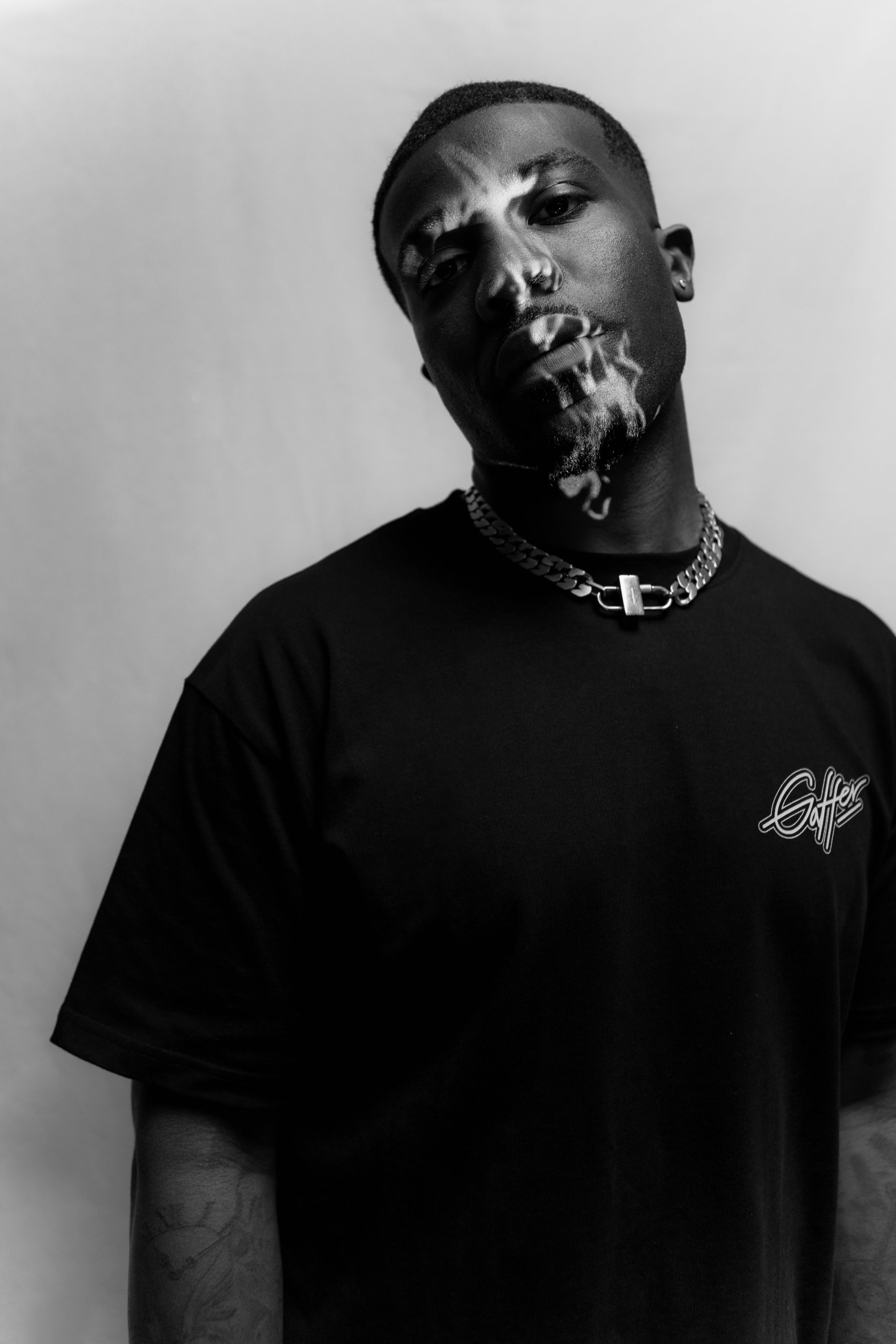 t-shirt: gaffer
t-shirt: gaffer





















